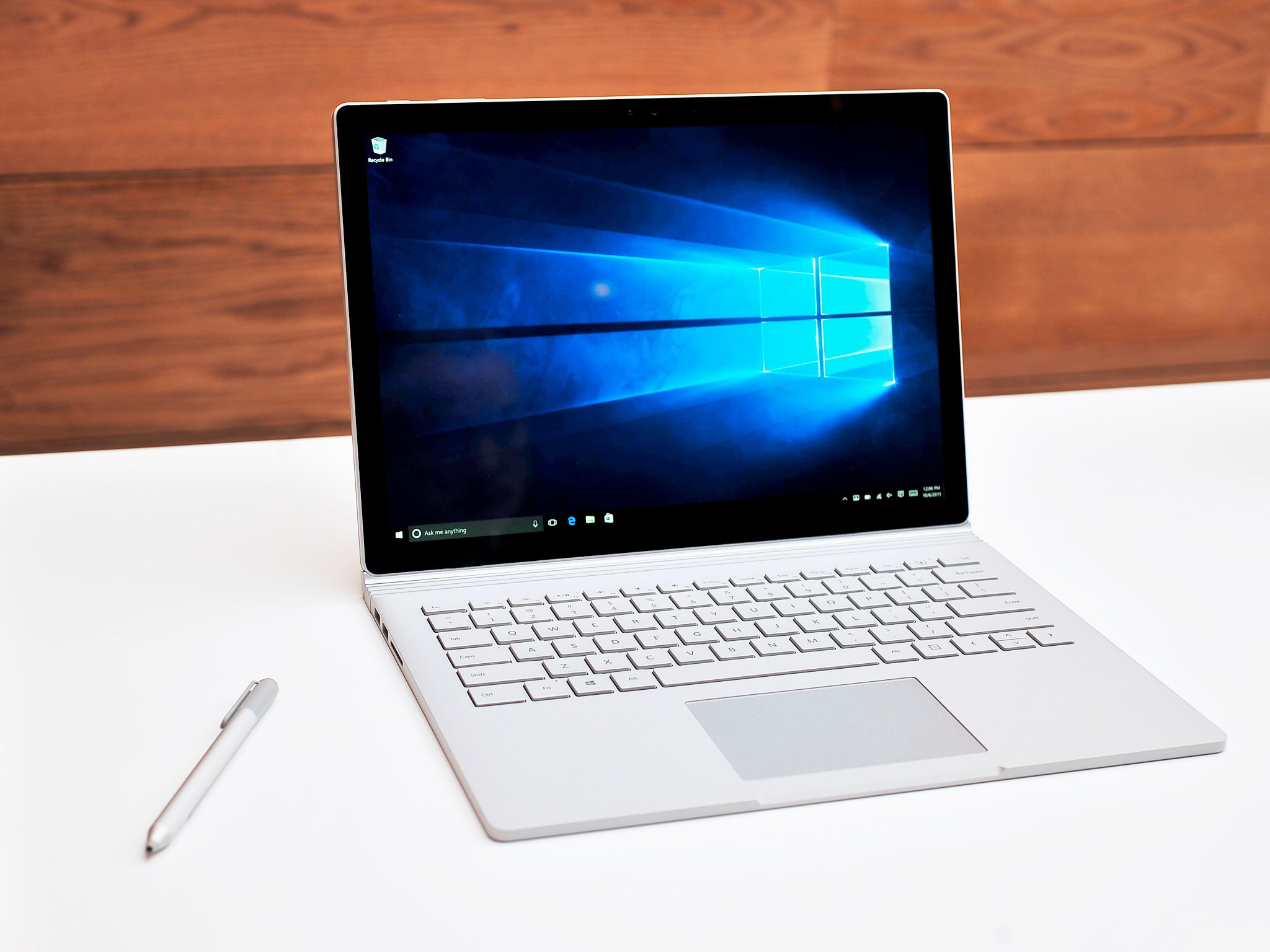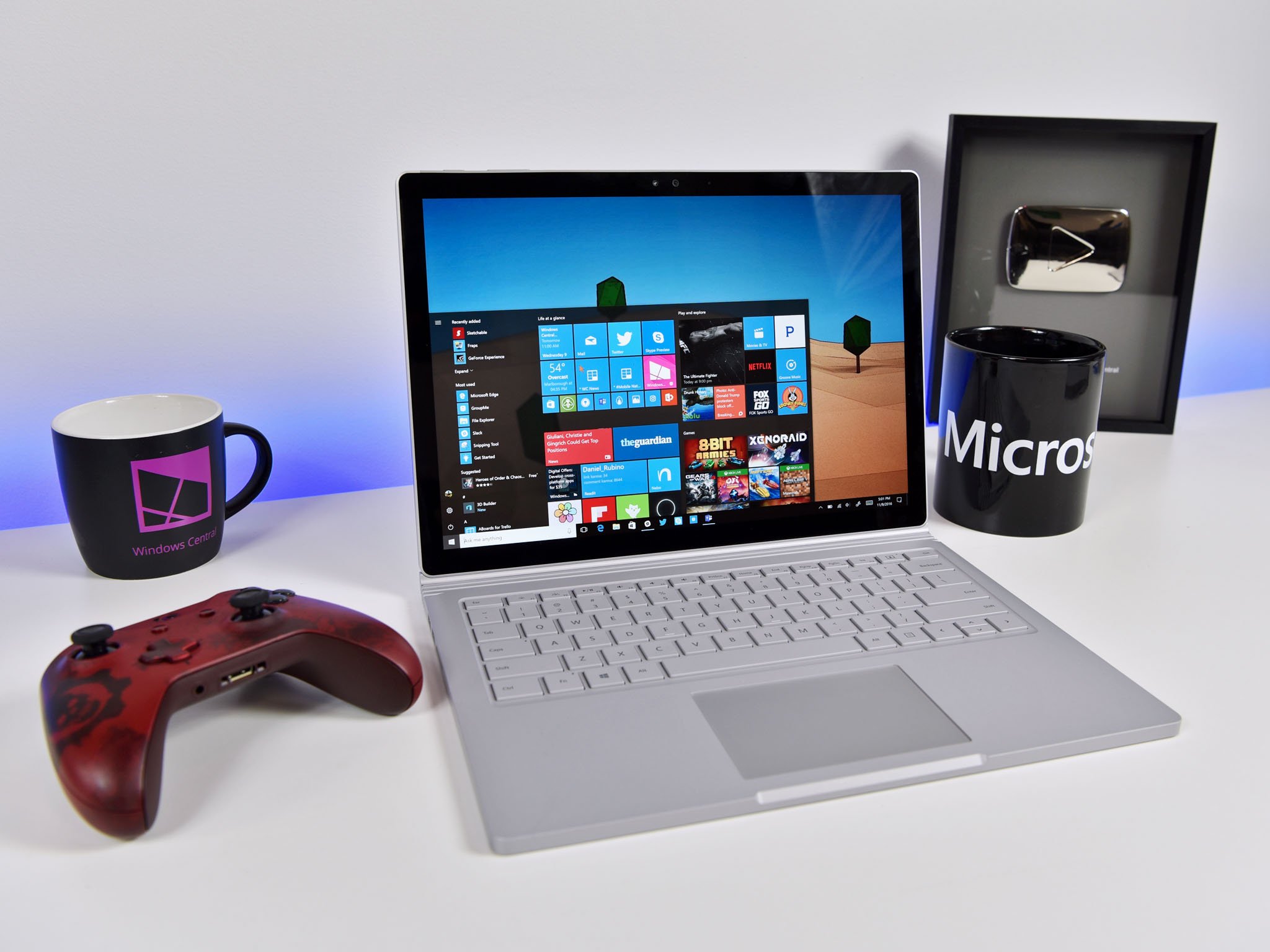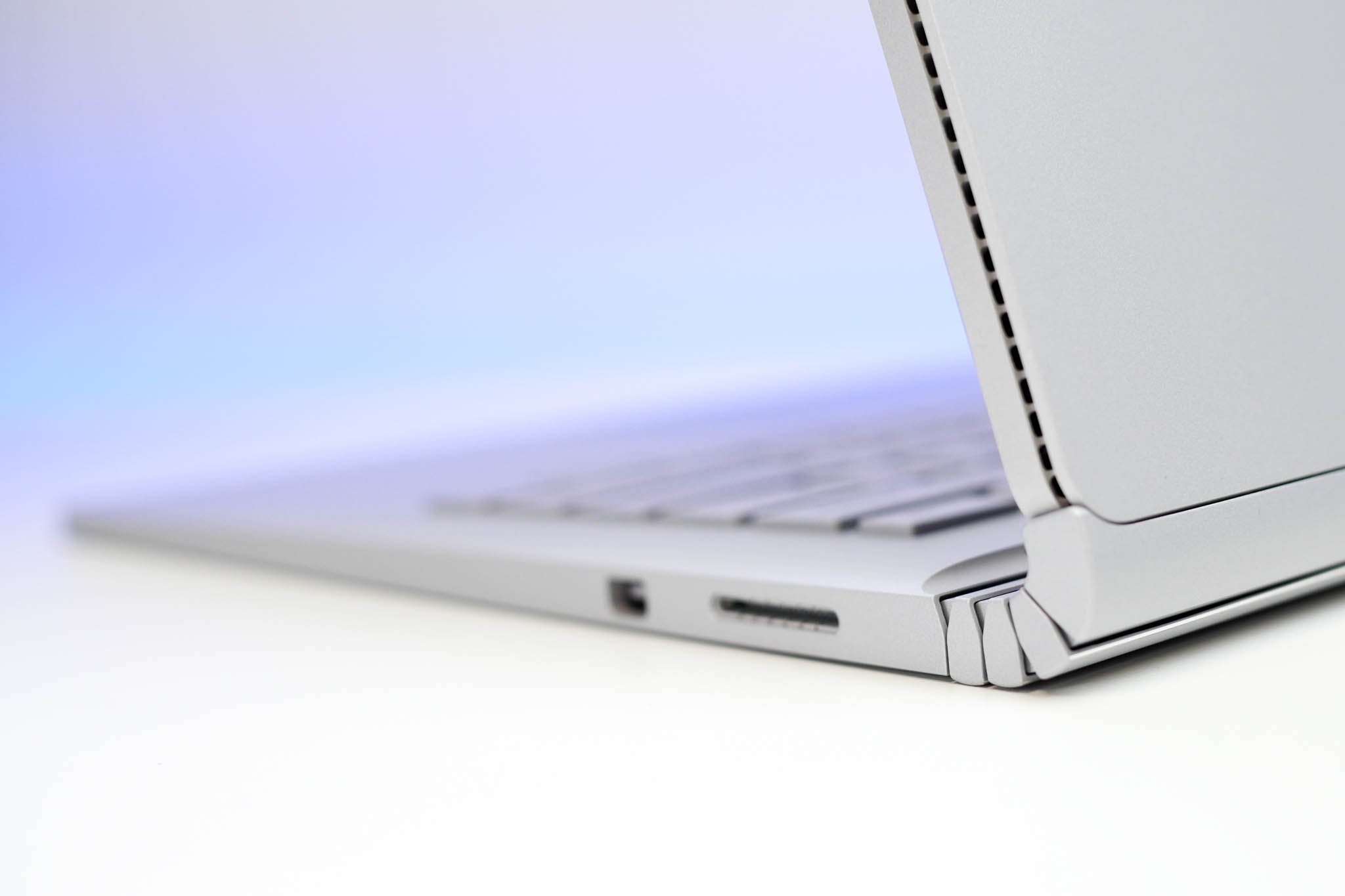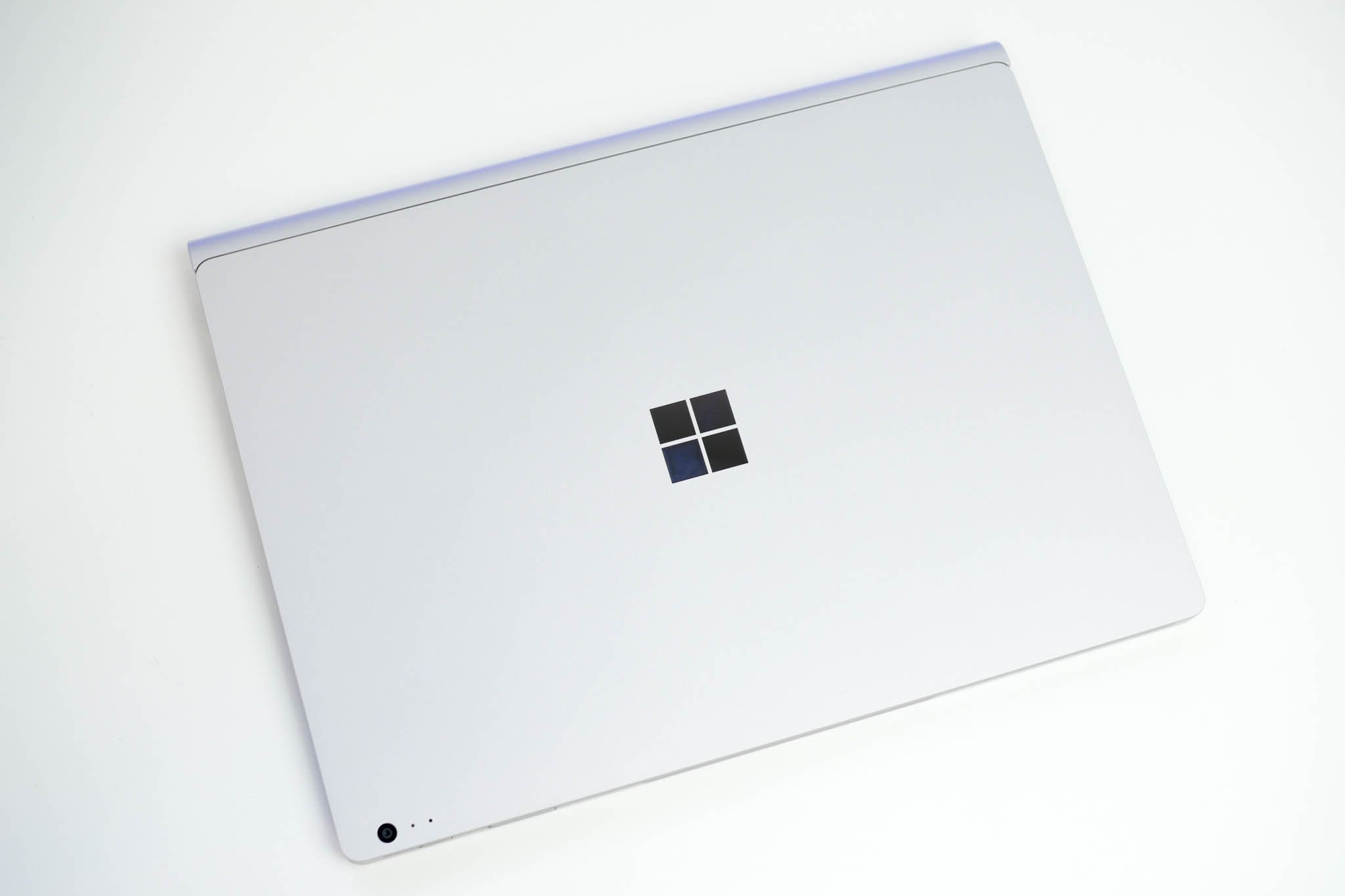Is Microsoft's Surface Book i5 still worth it a year a later?
I've owned my Surface Book for around a year. Here's how it held up during the last 12 months.


It was about a year ago that I picked up my very own Surface Book. It had just launched in the UK, and at the time I didn't really have any money saved to shell out for a super spec'd out model of Microsoft's first laptop. I had two options: be patient and wait until I had the money for a high-end Surface Book, or shell out for the lowest-end Surface Book right away. I did the latter because I have no patience.
The lowest-end model that I purchased is rocking an Intel Core i5, with 8GB RAM and 128GB storage. It's by no means a powerhouse, but at the time I didn't care. I was just happy to be part of the Surface Book family, experiencing that incredible craftsmanship coming from the Surface engineering team. I was a big fan of the Surface Pro 4, but I much preferred the Surface Book form factor.
It's been an entire year since then, which I think is plenty long enough to get used to and familiar with a device. I've been using the Surface Book as my primary laptop for basically 98 percent of that year, so it's been used enough to be considered old. How has it held up throughout the year? And is it still worth it? I've had many people ask me to do a follow-up post detailing my Surface Book experience, so here it is.
Surface Book hardware and design
The Surface Book is an incredibly beautiful device. It's a unique looking laptop, and that's a good thing. At first, the oddly shaped hinge wasn't something that I was a fan of, but after a few weeks of using the Surface Book it grew on me. At first, I was worried that it'd allow dust and other things to get caught between the screen and keyboard when closed, but the reality is that just doesn't happen.
What has happened, however, is over time my Surface Book became slightly bent. This is an odd issue that not many people appear to have suffered from, but about six months into using my Surface Book, I noticed that the screen no longer laid flush on a flat surface. It's almost as if someone stood or sat on the Surface Book while it was closed, causing the magnesium chassis to bend slightly. (I didn't, I promise.)
So, somehow, somewhere, at some point during my ownership of my Surface Book... It became bent? pic.twitter.com/aQVn12psIZSo, somehow, somewhere, at some point during my ownership of my Surface Book... It became bent? pic.twitter.com/aQVn12psIZ— Zac Bowden (@zacbowden) 4 September 20164 September 2016
What I believe may have caused it is stacking one or two other laptops on top of it. I often get a lot of laptops and devices in for review, and sometimes to save space I just pile a few of them on top of each other. This usually isn't much of an issue, but I wasn't thinking about the Surface Book's odd hinge, where the screen doesn't sit flush with the base, meaning weight can push down onto it and allow it to bend slightly. It's an unfortunate design flaw, but one that not many people will encounter.
At first, the slight bend was just a cosmetic issue and didn't hinder my use of the device, but over the last few weeks I've been noticing some oddities with the touch screen. I believe it's due to the bend, but the touch digitizer keeps seeing touch input in places I'm not actually touching. Sometimes it'll happen randomly when typing away, other times it'll happen whenever I'm interacting with the touch screen. It doesn't happen all the time, but I've noticed this odd behavior more than once.
Get the Windows Central Newsletter
All the latest news, reviews, and guides for Windows and Xbox diehards.
I've also noticed a few dents here and there, likely from accidently bashing my bag on things when traveling or dropping my phone onto it. They're not incredibly noticeable, but they are there. These dents don't hinder usability or performance in any way and are just cosmetic. Everything else is working perfectly fine. The hinge itself still performs great and hasn't lost any stiffness. The detach mechanism still works fine. Even the keyboard and trackpad have held up incredibly well, which is great news.
Performance
Since I got the low-end Surface Book, I was worried that performance would be an issue. At first, I was pleasantly surprised at how well the Surface Book handled itself under heavy load. The Intel Core i5 Skylake CPU along with 8GB of RAM handled most of the tasks I threw at it without any issues, but it wasn't good at every single thing I hoped I'd be able to do.

As my Surface Book doesn't have a dedicated GPU, doing screen recordings for software build videos is essentially a no-go without dropping the screen resolution dramatically, and even then you can't guarantee a smooth 60 frames per second (FPS) recording. What's more, it's basically impossible to edit any video in Premiere Pro over 4K, but luckily most of the video editing I do is with 1080p video.
Handling 1080p video is much better, but it isn't perfect. As this is an i5 with 8GB of RAM, you're definitely going to want to not be multitasking when editing any kind of video. Otherwise, you'll notice some slow-downs. What's more, rendering time is not fast at all. In short, if I ever need to do any video editing, I always opt for a more powerful laptop or my desktop instead of my Surface Book. This isn't an issue you'll encounter with the higher-end Surface Book models, and definitely not with the Performance Base.
So who is this low-end Surface Book model for? It's for people who don't do much creativity work. It can handle Photoshop and other drawing apps, but it won't handle video editing or 3D animation programs all that well. For most of my usage scenarios, the low-end Surface Book does absolutely fine. I'm a writer, so usually the most I'm doing at any given time is typing up a document in Word while browsing the web with a few tabs in Edge and listening to Music. I often have OneDrive doing file syncs in the background and Slack running minimized.
For people using their laptop like that, the low-end Surface Book is perfect. It's a great device for "work" and an even better one for people like students, who won't demand a lot from their laptops anyway.

I have noticed that some websites like TweetDeck cause Edge to hang and crash often on the low-end Surface Book, especially when using Edge with multiple tabs. However, that's more due to the fact that TweetDeck is a poorly optimized web page, and most other websites are handled just fine with the low-end Surface Book.
You can do some light gaming on the Surface Book i5, but I mean seriously light gaming. Unless you enjoy playing AAA titles at the lowest possible resolution and low-quality settings, I wouldn't recommend trying to play any serious games on the low-end Surface Book. It can handle games such as Halo: Spartan Assult and GTA: San Andreas fine, but anything that requires pushing the graphics card is just not going to run well.
Surface Book final thoughts
So how has the Surface Book held up over the last year? Admirably. Sure, there were times in which I wish I had opted for the more powerful Surface Book, and if I were given the chance again I'd absolutely wait until I had the money to grab the high-end model. But for most of what I do, the low-end model has held up incredibly well.
It held up less well hardware-wise but not to the point in which the Surface Book doesn't work. A few dents here, a bend or so there, and the touch digitizer is a little finicky, but everything still works. I've still got a few weeks left on my hardware warranty, so I'll likely be able to trade in my Book for a new one if the touch-digitizer issue continues to act up.

I don't use the Surface Pen at all, and that's likely because I'm not really someone who needs the pen to get my work done. I'm not an artist or an animator, and I knew that when purchasing the Surface Book. Admittedly, the Surface Book is still a one-of-a-kind device when it comes to that 2-in-1 laptop with a pen form-factor, and the Surface Book arguably does pen-integration the best.
The question I keep asking myself: "Do I recommend the Surface Book in 2017?" I don't think so. That's not because the Surface Book is bad, because it isn't. If you're a pen user, the Surface Book is probably a great option for you. I'm almost certain the high-end model will be able to get done whatever task you need it to, but I'm just not sure I can recommend a year-old device, with an Intel SkyLake CPU, for the price you still have to pay for it. The Surface Books haven't really come down in price all that much since they launched, meaning you're essentially paying for a SkyLake laptop as if it were brand new on the market.
For example, the top-end, non-performance-base Surface Book costs around $3,200. That's an incredibly pricey laptop. That top-end Surface Book gives you an Intel Core i7 SkyLake dual-core CPU with 16GB of RAM and a 1TB storage drive. Meanwhile, Dell is selling the XPS 15, with an Intel Core i7 Kaby Lake quad-core CPU with 32GB RAM and 1TB Storage for around $2,500. That's a $700 difference for a generation-old device, and a less-powerful one at that.
It's the same story even at the low-end of the spectrum. Here in the UK, I paid £1,299 for my Surface Book with an Intel Core i5 SkyLake, 8GB RAM and 128GB Storage. For slightly less than that price, I can get a Dell XPS 13 with an Intel Core i5 Kaby Lake, 8GB RAM and 256GB Storage. You get more performance and storage, and a higher-resolution (4K) screen too.
So, I can't recommend the Surface Book right now, especially at the prices Microsoft continues to sell it. If prices came down a bit, I'd definitely reconsider. When Microsoft releases the Surface Book 2, I'm sure these prices will be justifiable again, but until then, I'd buy something else. If you don't care about my opinion on the matter, you can check out the Surface Book at Microsoft's website.

